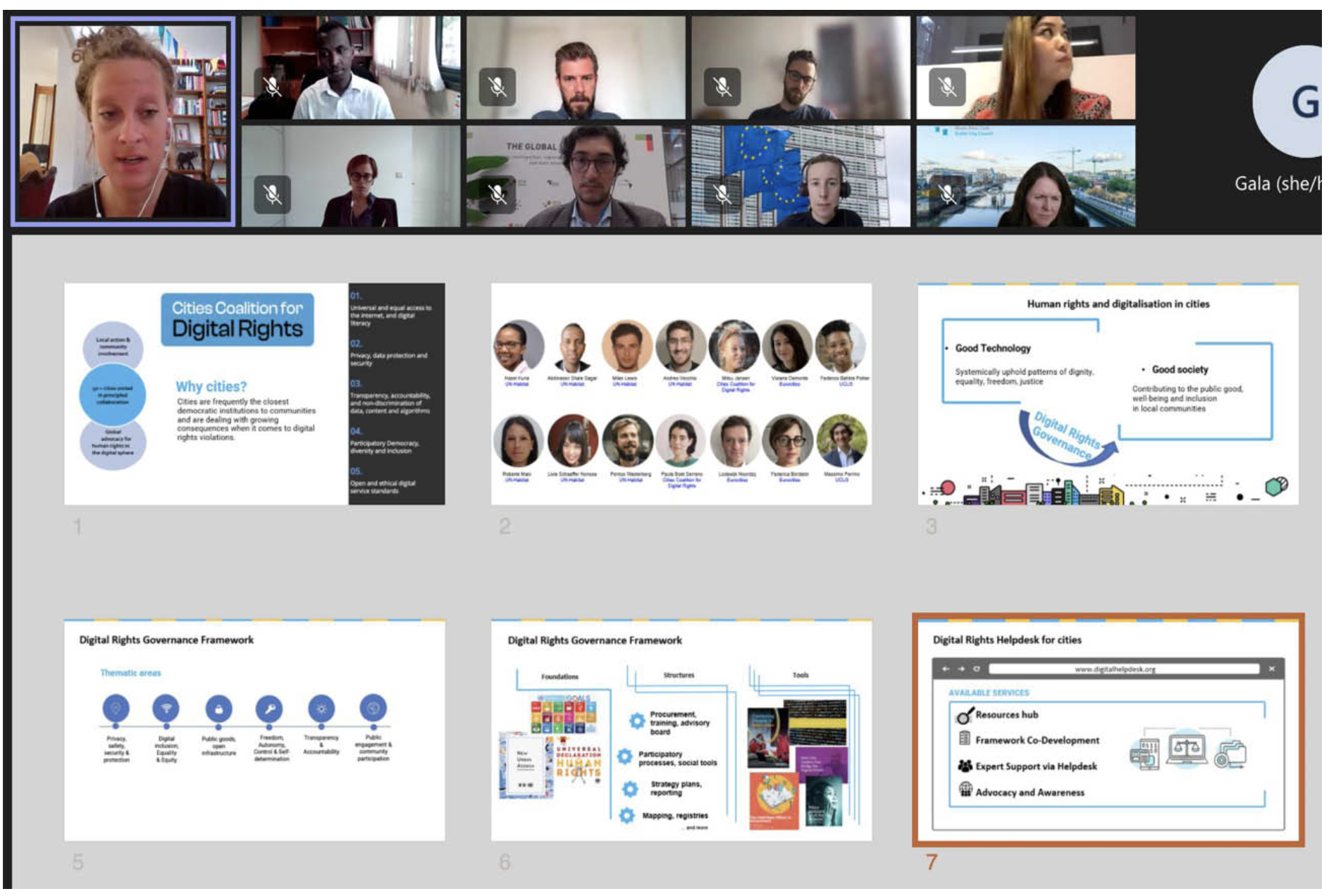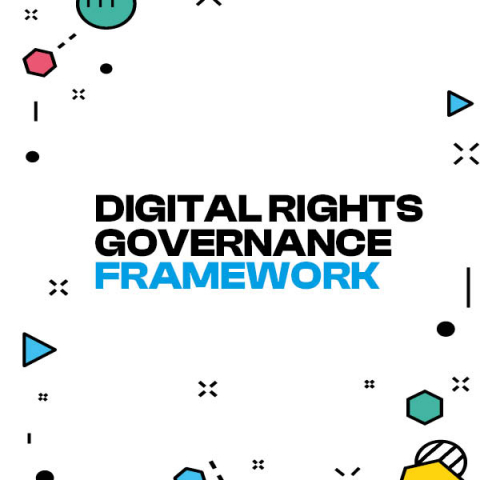On Wednesday 25th May, representatives from Dublin City Council and Smart Dublin took part in a high-level announcement for the Digital Rights Governance Framework – a UN-Habitat initiative developed as part of the Cities Coalition for Digital Rights. As urban areas increasingly adopt new forms of technology and data-driven decision-making, the Framework will help cities strategically manage the opportunities and risks driven by technology and to ensure digital rights with transparency, community participation and accountability at the forefront of practices.
Highlighting the role cities play in harnessing technology and trustworthy digital services to improve the lives of urban communities, the Framework marks a milestone for citizens’ digital rights. As a pilot city, Dublin will build upon our existing citizen engagement initiative, Academy of the Near Future (a joint collaboration between Dublin City Council, Smart Docklands, and Trinity College Dublin’s CONNECT Centre), to develop a foundational educational module on digital rights, ethics and privacy targeted at young people and local authority workers in the city.
The Digital Rights Governance Framework
Dublin, along with Brussels, Sofia, and Tirana, has been selected to pilot the Framework over the coming years. Committed to protecting human rights and advancing digital inclusion, the Framework is defined by a series of key objectives ranging from improved access to affordable internet, enhanced data privacy and control over personal information, provision of secure digital services, to developing policies, laws, plans and strategies that promote ethical digital service standards at the city and global level. In addition to these key objectives, the project opens up a collaborative space for European cities to learn from one another as they translate the Framework’s core principles into their daily work.
Taking place online, last Wednesday’s event formally introduced the Framework along with the four European capitals set to pilot the initiative. With contributions from the UN-Habitat, European Commission, Eurocities, and representatives from each of the pilot cities, the panel reinforced the link between digital rights and human rights while emphasising the need for developing local solutions to local contexts.
The event was an opportunity for participating cities to showcase their existing digital rights initiatives along with their future plans for the upcoming Framework. Speaking on behalf of Dublin, Eileen Quinlivan (Assistant Chief Executive of Dublin City Council) reiterated the need for ethical data collection and the mainstreaming of human rights as the city continues its digital transformation. Eileen also drew attention to the plethora of Smart Dublin projects already taking an active role in promoting citizens’ digital rights and inclusion in the city. Such initiatives include Unheard Voices, a community challenge that encourages citizens to engage in local consultation, and WiFi4EU, an open access WiFi platform that tackles unequal access to internet connectivity.

Digital Rights & Dublin: What’s next?
Over the coming months, Dublin will work with other pilot cities and the UN-Habitat team to strengthen the city’s commitment to digital rights. The initiative will kick-off with two workshops across June and July, the first focusing on identifying the foundations of the framework that connect to Dublin while the second will create concrete deliverables based on ideation and identification of noted issues and opportunities for the city.
Building on these workshops, the Smart Dublin team will develop an education programme for students and local authority staff centred around the themes of technology and ethics, data privacy, and digital inclusivity. Delivered through our existing education and engagement initiative, Academy of the Near Future, the programme will continuously work with communities to find local solutions to local digital rights challenges while opening up a platform for citizen engagement, collaboration, and empowerment.
